Can a big time homebody truly enjoy traveling? What do you think?
Imagine someone who easily spends weeks at home (except for daily walks), yet has somehow managed to catch over 100 flights in the past 7 years. Yes, you read that right — 100+ flights.
That someone is me. For years I’ve wrestled with this simple question:
Do I actually like traveling, or am I just doing it because I have to?
It’s a valid question. And it’s one I thought was worth answering.
In this week’s update, I’d like to share some of my reflections on traveling and why I think most people haven’t actually traveled, even when they say they have.
Which Camp Do You Belong To?
From what I’ve noticed, there are 3 types of travelers:
- Social Media Adventurers are after the perfect Instagram pic or video.
- Intentional Travelers crave unique experiences.
- Hesitant Homebodies feel like it’s too much of a hassle.
On first read, which camp do you think you’re in? 👀
Personally, I struggled with knowing if I was an intentional traveler or hesitant homebody. All of my trips were for work or family/friend reasons. How could I know which camp I was in if I’d never traveled just for travel’s sake?
There was only one way to find and it was to do exactly that — travel for travel’s sake.
Introvert confession: From when I was a teenager and even until now, every time I have to leave my house, there’s a short moment where my mind tries to find excuses to stay home — even if I paid for a flight reservation! But I’ve learned to override those moments. Once I push myself to leave the house, I get super present and usually end up enjoying my time away.
My Travel Experiment
In 2023, I chose 2 affordable (relative to my money situation) countries I had no connections to:
- Colombia – 5 months total (spread over 3 trips)
- Dominican Republic – 3 months total (spread over 3 trips)
What I discovered surprised me, and it changed how I think about travel. Here are 5 key reflections that might change your perspective too.
Reflection #1: Traveling is Not Vacationing
I realized something after my first trip to the Dominican Republic.
During my time in Santo Domingo, I found myself spending weeknights on a patio with Kamal (my Airbnb host) and Hussein (the property’s architect). We shared stories about heartache, happenings and life’s ironies while puffing on cigars and sipping on tequila.
I learned a lot about Dominican culture in those conversations. It was funny because I’d tell them about people I met or experiences I had during the day, and then they’d contextualize everything for me. They helped me see why people and things are the way they are from a Dominican standpoint.

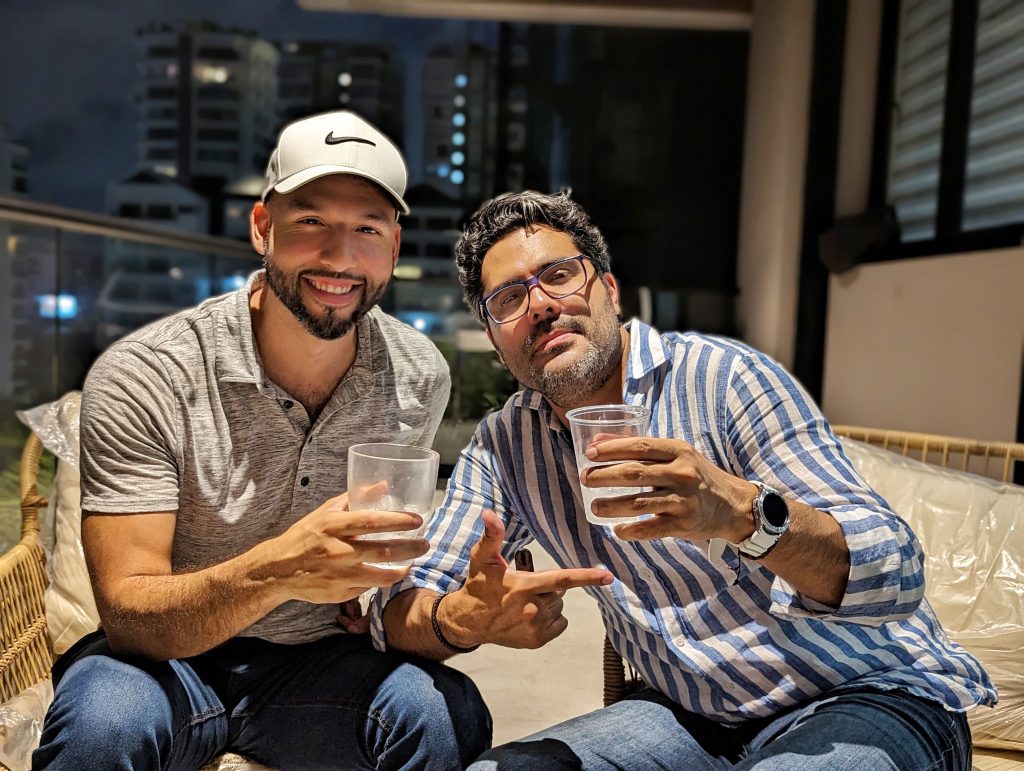
These two have become dear friends of mine along with others I met in different regions in the DR. They are the epitome of what it means to be social. I’m genuinely surprised how much they’ve kept in touch with me over the years!
Side note: Hussein is actually Venezuelan but has lived in the Dominican Republic for the last 15 years or so. So when he contextualized things, he could highlight things Kamal (who’s Dominican) assumed I already knew.
Most people who’ve mentioned visiting the Dominican Republic to me, talk about sunbathing or clubbing in Punta Cana. It’s no wonder I struggled to relate when people talked about “loving travel” — they were talking about vacationing, not traveling.
What’s the difference?
Vacations are about relaxing. Traveling is about exploring. One keeps you in your comfort zone, the other pushes you out of it.
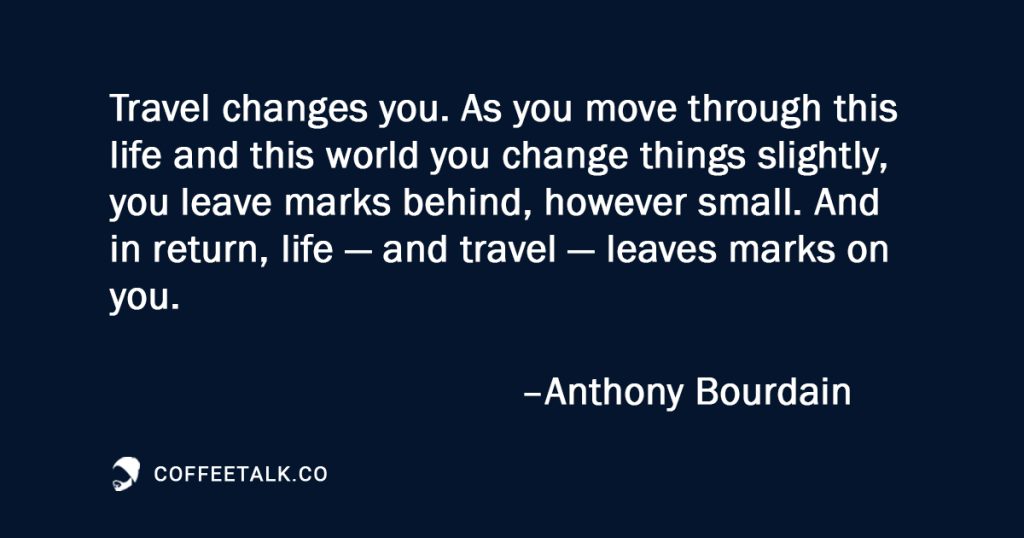
Understanding this difference unveiled my own travel style, which brings me to my next reflection.
Reflection #2: Traveling Unveils Who You Are
The more time I was away from home, the more I noticed about myself.
For example, in Colombia and the Dominican Republic, I felt more at home than I usually do in the US, where I was raised. The customs and social dynamics in these places feel more natural with parts of myself that seem to be neglected, even rejected in US culture (I’ll leave that for another newsletter 😅 lol).
But it wasn’t just about what felt familiar, it was about what made me uncomfortable too. When you’re pushed outside your comfort zone, you’re forced to explain things you’ve never had to explain before.
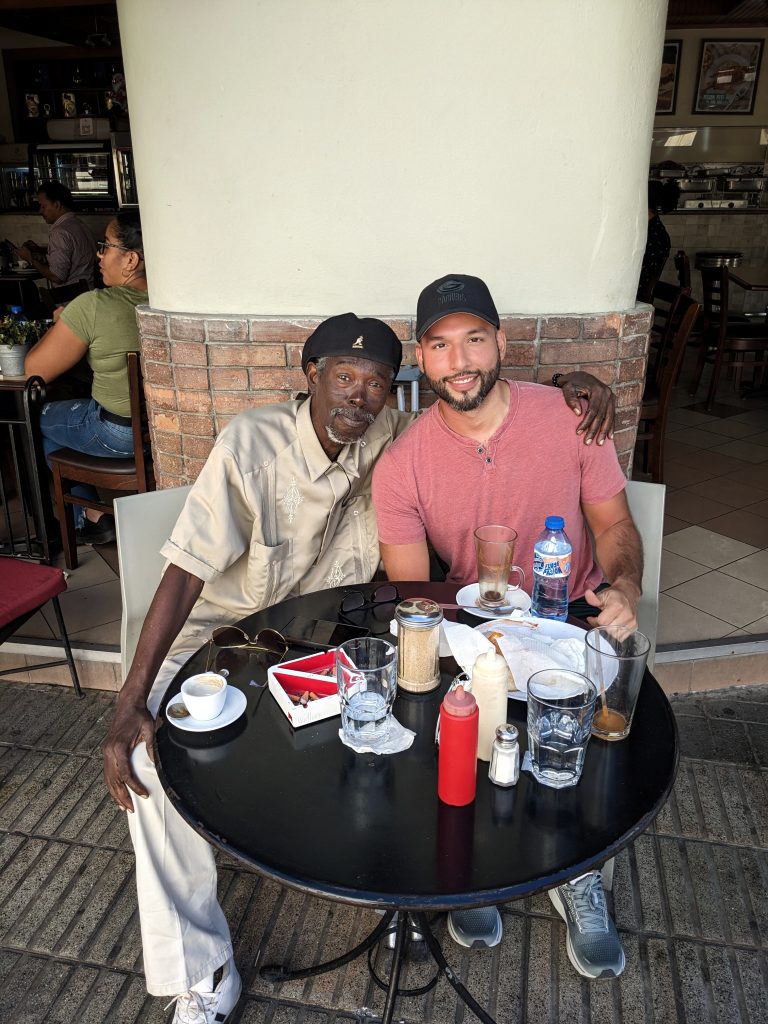
It caught me off guard how strangers would casually call each other “mi amor” (my love) or “corazón” (heart). In Mexican culture, we don’t do that — those words are too intimate to use with strangers or acquaintances. It’s a respect thing. Hearing people call a random stranger “mi amor” made me think about how different culture see social boundaries.
Lots of people avoid or reject uncomfortable moments. But if we let them, these uncomfortable moments can be like mirrors that help us see our paradigms more clearly.
When you travel (especially on solo trips), you can be anyone you want. Ironically, you end up becoming (or is it reverting back to?) your truest self.
Without your usual social context and comfort zones, you’re forced to confront who you really are, not just who you’ve learned to be. A foreign culture can make this contrast clear as day.
Reflection #3: Traveling Illuminates Human Nature
On one hand, traveling unveils who you are. On the other hand, it also shows you what makes us all human.
When I was in Colombia, some locals warned me about Venezuelan immigrants (you know how stereotypes go — usually a mix of truth and exaggeration). But you know what? Venezuelans turned out to be some of the people I connected with most deeply.
They had different backgrounds and had different norms and ways of expressing themselves, but the more time I spent with them, the more I noticed the same emotions we all share.
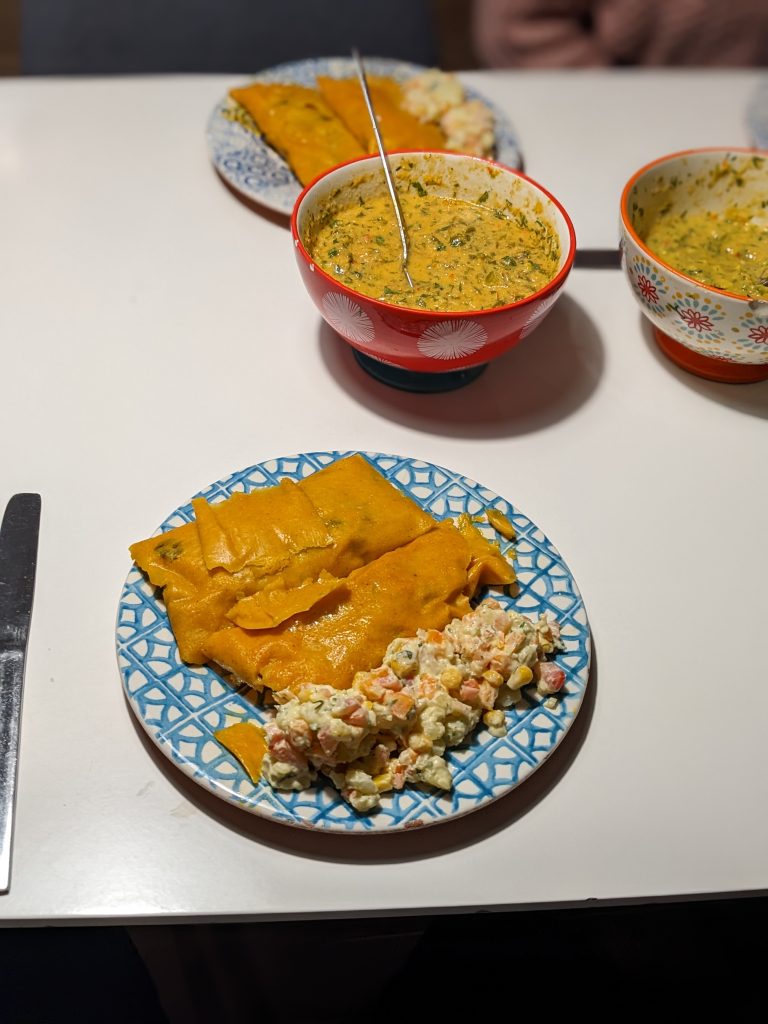
The thing is, when you travel, you’ll come across people that do things differently than you. Maybe they speak another language or think totally opposite as you do. But if you look beyond that and get to know them better, you’ll find that they feel the same love, fears, and dreams that folks back at home do. We all carry our own light and darkness.
It’s a weird paradox — what makes each person different (how they express themselves) stems from exactly what makes us all the same (the actual feelings we express).
Reflection #4: Traveling Expands Your Mind
What are your thoughts on “expanding your mind”? Sounds philosophical, right?
But you know what? Sometimes expanding your mind is as simple as cooking.
For example, a friend of mine thought they knew Mexican food — until they actually ate in Mexico. Now they go to Mexican grocery stores to buy their ingredients when they cook Mexican food. They can’t imagine going back to their old way of cooking.
That’s what expanding your mind is really like — you experience something new, and your old normal just doesn’t cut it anymore.
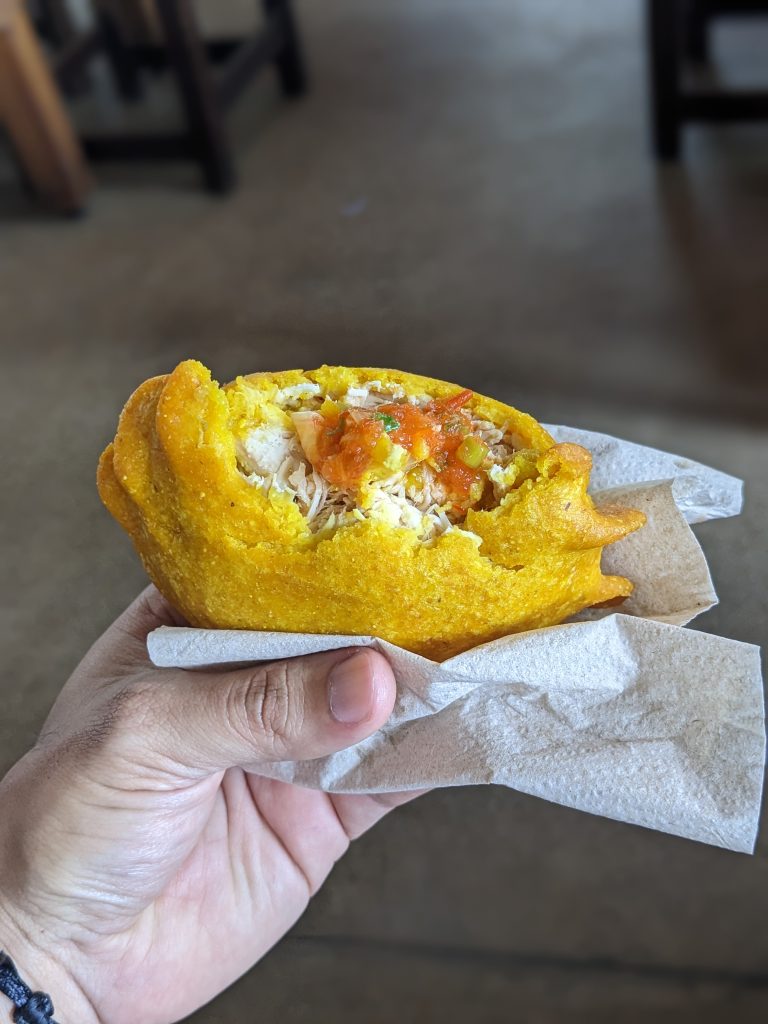
But don’t confuse being open with expanding your mind.
Being open means pausing your judgments and welcoming new experiences. It’s this openness that sets the stage for the expanding part.
Expanding your mind means being intentional about what you integrate into your life from those experiences. Maybe it’s how a culture does family time, or how they celebrate traditions, or even how they look at life itself.
When you travel, follow your curiosity. Go with the flow. The places will teach you plenty, but it’s the people who’ll help you expand your mind the most.
Reflection #5: Traveling Is Actually About People
After all these reflections, here’s what it comes down to — traveling isn’t really about the places — it’s about people.
In Medellín, there was this Colombian family who pretty much adopted me during my stay. They’re the owners of a café that was next door to an Airbnb I stayed at. And if you’ve known me for some time, then you know I really enjoy the ritual of brewing a lovely cup of coffee. This family knew their stuff and found my nerdiness about coffee acceptable, lol.
Another thing this family had was curiosity and awareness of Mexican culture — they were familiar with our music, food, and traditions. It was super easy to bond with them. And my friend Juan (who’s super smart) helped me understand more about Colombia’s history and political climate — things that would take me forever to understand through books or documentaries.
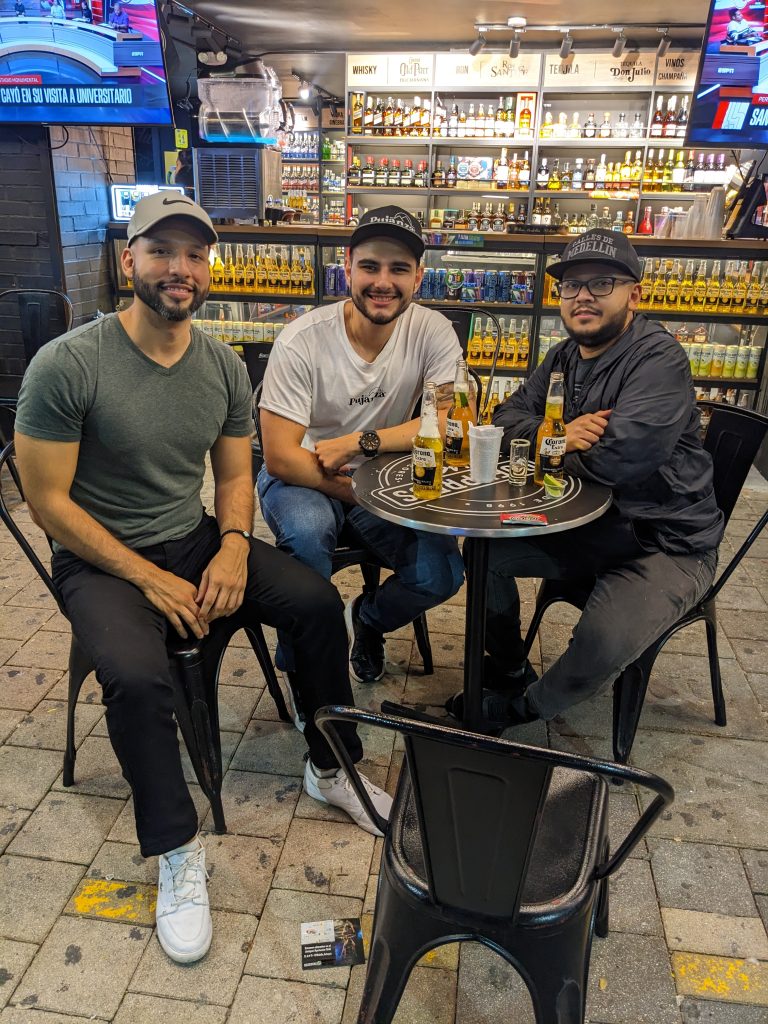
We hit it off so well, they even took me “puebleando”, which is when one (or a group of people) drives to a semi-far away town and spend the day there. We also visited a “charco” (translates to “puddle”) — a small body of water. The one we swam in had a river stream and waterfall. It was pretty nice!
Juan David’s dad (also named Juan on the left) and brother (also named Juan, lol! in the center), and me (right). We’re on our way to Cisneros to “pueblear”.
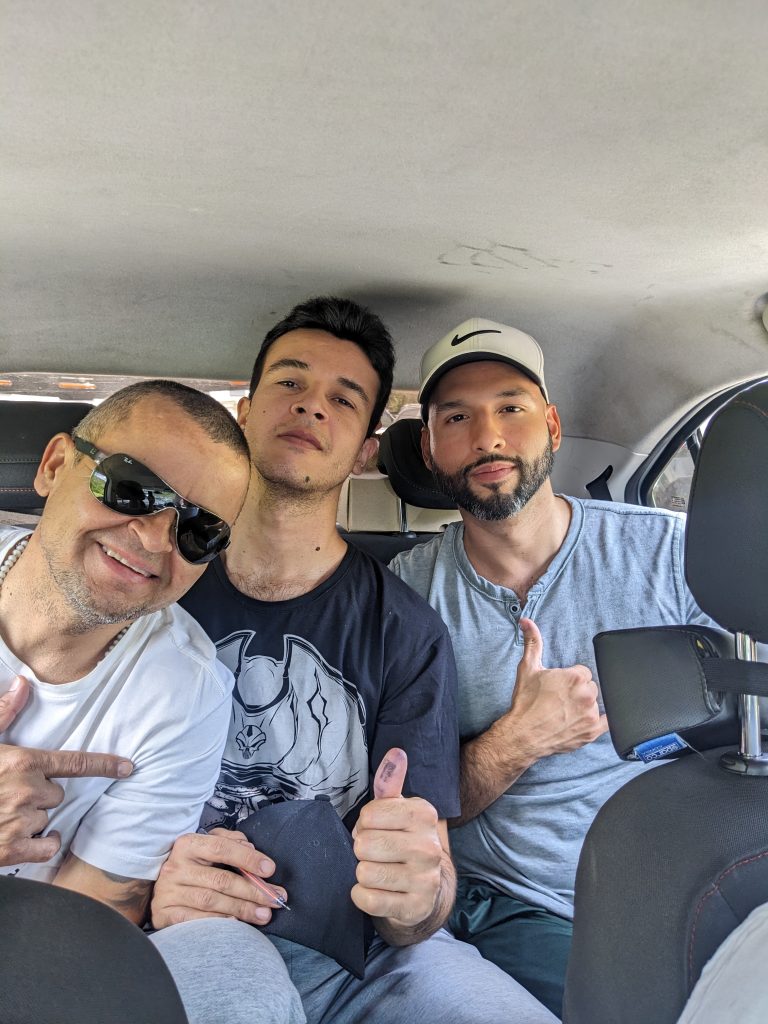
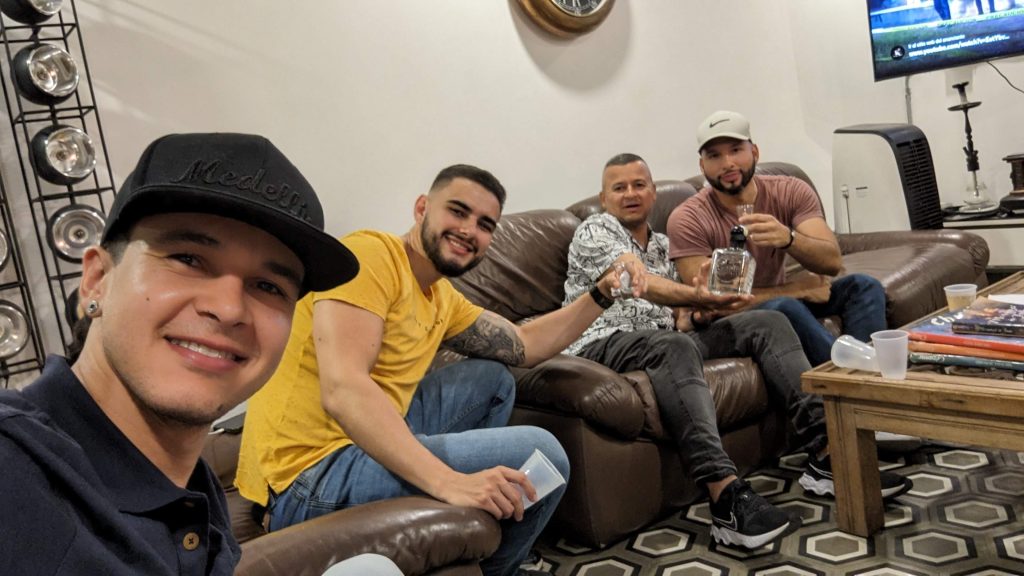
These weren’t tourist experiences you could book — they were real organic moments of connection that helped me get a glimpse of what Colombians are like. I was able to eat, drink, a do the things they do in their spare time to relax and enjoy their time.
Here’s the thing, though. If you really think about it, you don’t have to leave the country to have these kinds of experiences. You can have them right at home. Your neighbors, coworkers, or people in other neighborhoods live in different worlds. They have different stories and perspectives. All you have to do is spend time with them and get to know them.
The Homebody’s Verdict
Maybe that’s why, as a homebody, I’ve finally made peace with how I feel about travel. It’s not about checking things off or posting the perfect pics. It’s about those late-night conversations over cigars and tequila, the unexpected friendships made at a café, the uncomfortable moments that push us to see life through a different lens — whether we agree with it or not.
So yeah, the verdict is that I genuinely enjoy traveling — like for real.
What about you? Have you actually traveled? Or have you just been vacationing? 👀
PS — If you ever plan a trip to Santo Domingo, checkout my friend Kamal’s lodgings. They’re located in an excellent location walking distance to a lot of Dominican history.
If you ever visit Medellín or would like to order high quality coffee beans from Colombia, checkout Pujanza — they’ll ship them straight to your house (even if you live in the US).
DM them and let them know Luis, their Mexican compadre sent you. They’ll take good care of you!

